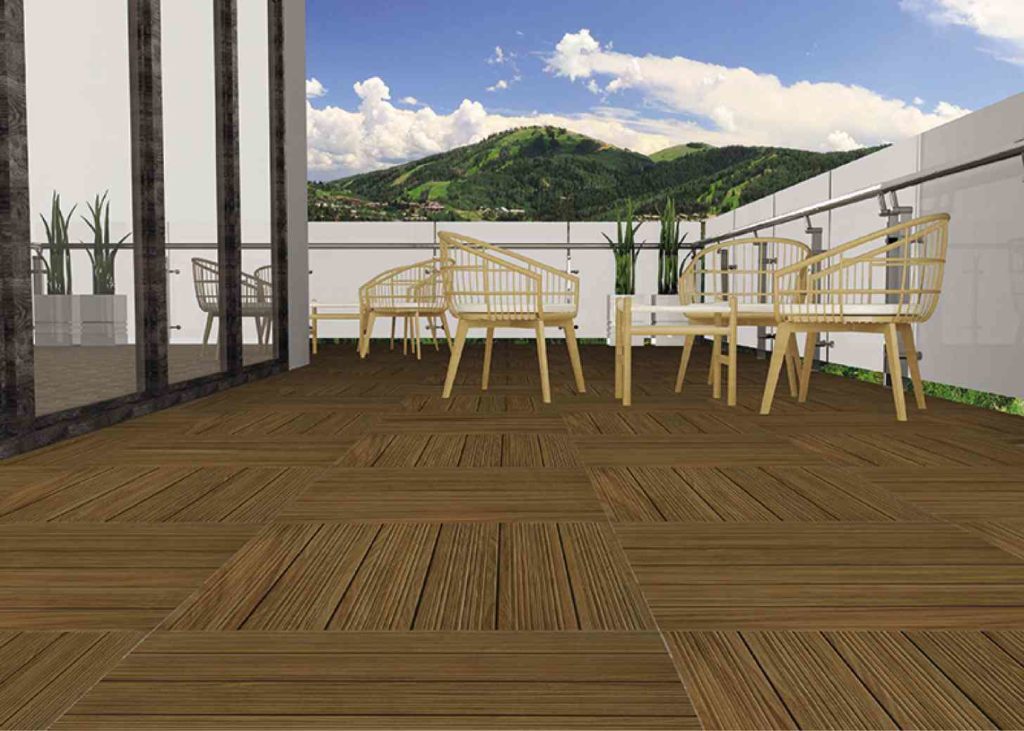
Proper care and maintenance of tiles will prove to be more beneficial in the end.
The rainy season in the Philippines has started, and along with it comes possible water damages that can cause major problems to our houses, especially to our floorings.
The catch is that most of the water damages occur without us knowing it. Thus, by the time we notice it, expensive repairs may already be required.
What kind of repair is necessary? If the affected portion is a whole tiled surface area— bathrooms, kitchen, entryway, basement—we may find ourselves replacing the entire area, which will not only be costly, but also inconvenient.
Further, the accumulated moisture creates a haven where mold and mildew can thrive, potentially causing illness and allergies in the family. Hence, it is always best to do major renovations before or after the rainy season.
Meanwhile, here are a few things that you should take note of to prevent water damage to your tiles and flooring:
• Hire a plumber to determine if there is a leak in the pipelines or taps. Leakages must be repaired immediately.
• Ask a professional tiling contractor to determine if the problem is caused by a lack of/ failed waterproofing, cracks in the tile glaze, or in the soft grout.
• The more textured the tile, the more slip resistant it will be. This also means that more dirt can cling to it.
Porous tiles are more susceptible to staining, and will need a sealer to reduce the tendency of dirt to cling to the surface.
Slip resistant floors will become less slip resistant and become even more slippery when it is not properly maintained. This could be dangerous especially for outdoor tiles during the rainy season.
• Sealers are necessary for very porous ceramic tiles such as Mexican/Terra Cotta pavers and porous grout to help make them more stain resistant and easier to maintain.
But remember, sealers do not make tiles stain proof only stain resistant. Sealers need to be reapplied every once in awhile for maximum protection.
The surfaces of most ceramic and porcelain tiles do not need to be applied with sealers but needs a neutral based cleaner or detergent.
Do not use any acid based cleaner. If it is really necessary to clean unglazed tile with acid use. It is safer to use sulfamic acid. Never use muriatic acid.
• Don’t use steel wool or abrasive scrubbing powdersyour tile. Your tile has a finish on it that may be damaged with any of these products.
Instead, use soft cleaning cloths and mops. When mops are used to clean the floors, make sure to keep changing the water throughout the process.
Failing to do so will cause dirty water to settle on the grout joints, creating a dirty gray color look over time from the dirty residue left behind when the water evaporates.
A scrub brush with an extended handle is highly advisable for scrubbing the floors. It’s best to use a wet and dry vacuum to pick up the dirty water afterwards.
In extreme cases, especially if waterproofing has failed, the tiles will have to be removed and reinstalled.
Proper care and maintenance of our precious tiles will not only save them of their aesthetic value but will also be beneficial to us that owns them since it will save us huge money in replacing them.
Jacob D. Daton is a marketing officer at the Floor Center.